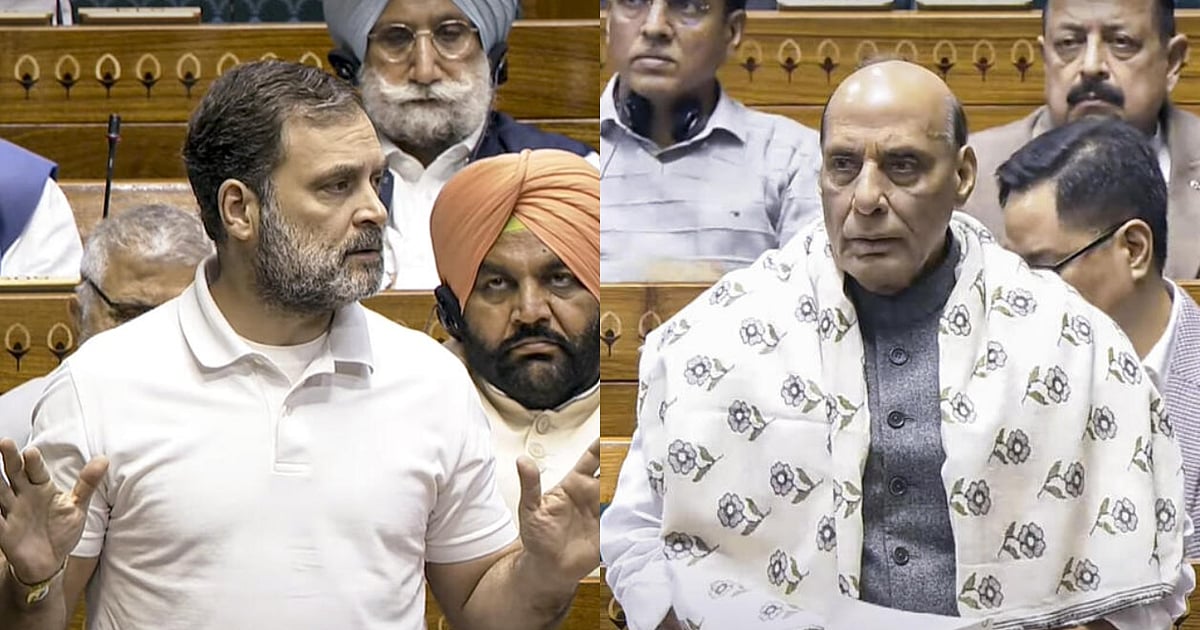 |
|
The Indian political landscape is currently experiencing heightened tension following a statement made by Rahul Gandhi regarding the India-China situation, which has been met with strong rebuke from Defence Minister Rajnath Singh. Singh's assertion that Gandhi's allegations against the Army chief were false underscores the gravity of the situation and highlights the deep divisions within the Indian Parliament. This clash of narratives is playing out against a backdrop of other pressing issues, including ongoing farmer protests and the aftermath of the tragic Maha Kumbh stampede.
Gandhi's speech, delivered as a response to the Motion of Thanks, apparently contained remarks that the BJP found deeply objectionable. The specific nature of these remarks, beyond the accusation of misleading statements by the Army chief, remains somewhat unclear from the provided text. However, the swift and strong response from Rajnath Singh, accusing Gandhi of making false allegations, suggests the comments were perceived as serious and potentially damaging to the government's position on the sensitive India-China border issue. The timing of the rebuttal, coinciding with Prime Minister Modi's scheduled address to the Lok Sabha, further emphasizes the political significance of this dispute. The subsequent parliamentary proceedings will likely delve deeper into the specifics of Gandhi's speech and the government's response, potentially leading to further political maneuvering and debate.
The broader context of the parliamentary proceedings reveals a multi-faceted agenda beyond the immediate controversy surrounding Rahul Gandhi's remarks. The smooth sailing mentioned in the article regarding the discussion on farmers' issues suggests a temporary reprieve from the intense political sparring. However, the inclusion of Akhilesh Yadav's criticism of the Yogi government's handling of the Maha Kumbh stampede demonstrates that other significant concerns are vying for attention within the parliamentary arena. This juxtaposition of issues highlights the complex challenges facing the Indian government, ranging from border security concerns and diplomatic tensions to domestic policy failures and humanitarian crises. The interplay between these various issues will likely shape the political landscape in the coming days and weeks.
The article's limited information necessitates a speculative exploration of the potential ramifications of this political clash. The BJP's strong reaction suggests that they view Gandhi's statements as a direct challenge to their authority and credibility. This could escalate tensions within Parliament, leading to further verbal sparring and potentially more confrontational political tactics. The government may seek to utilize this opportunity to further consolidate its position on the India-China issue, while the opposition may attempt to use it to question the government's handling of national security and foreign policy. The response from the public and the media will also play a significant role in shaping the narrative and influencing the trajectory of this political dispute. The coming days and weeks will be crucial in determining the long-term implications of this latest parliamentary confrontation.
In conclusion, the seemingly brief news item encapsulates a complex political scenario involving accusations of falsehood, sensitive national security issues, and ongoing domestic concerns. The interaction between these elements will continue to shape the Indian political landscape, and the upcoming parliamentary session promises to be a pivotal point in the ongoing power struggle between the ruling BJP and the opposition parties. The article serves as a snapshot of a dynamic political environment, highlighting the intense competition and the significant stakes involved in the current political climate.
Source: 'Rahul made false allegations about Army chief's statement on India-China situation,' says Rajnath
